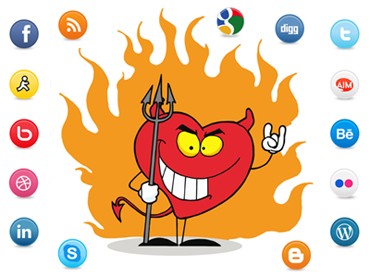Author Maria Perez is director of news operations at ProfNet, a free service that helps journalists find sources.
I recently attended BlogWorld & New Media Expo, a three-day conference and trade show for bloggers, podcasters, Web content creators and social media innovators. I was able to listen in on several content creation and blogging sessions, and will share highlights from a few of my favorites. [See also “40+ content creation story ideas for your blog” and “8 ways to master the list post.”]
Whether you’re a reporter,
blogger, author or
other content creator,
you can send a ProfNet query
to experts worldwide or search
more than 50,000 expert profiles
by keyword, institution type and
geographic location.
All of ProfNet’s services
for writers are free.
The opening session, “7 Deadly Social Sins,” was presented by the entertaining Scott Stratten, a well-known speaker and expert on viral, social and authentic marketing (aka “unmarketing”). Here are a few highlights from his presentation:
“Social media is not about being everywhere. You just have to be great where you are.”
And being great on social media only really requires you to be average, added Stratten, “because everyone else sucks.”
Want to not suck at social media? Don’t commit these seven social sins:
1. Gluttony. Engagement is the biggest benefit of social media, said Stratten, so if you’re automating your feeds without engaging with your audience, you’re not being present. The shelf life of a tweet is about five minutes; if you don’t engage with someone who responds to your tweet, you lose the chance to have a conversation.
2. Pride. Posing questions like, “What’s your favorite product of ours?” or “Why do you love our company?” is not the right way to engage your audience. It’s not about you – it’s about them.
Also, don’t be the company that allows only positive comments. “You don’t make the rules,” said Stratten. Doing this will only cause people to make fun of you, and that’s the wrong way to get people to share.
3. Sloth. Social media has changed the timeline for responding. Whereas companies used to be able to say, “We will get back to you in 5-7 days,” response time is now measured in hours, if not minutes. “If you’re not going to monitor social media regularly, delete your account,” said Stratten. “If you don’t have the time, don’t do it. If you hate people, don’t do it. Don’t try to have a presence without being present.”
4. Greed. We’ve all seen the ads: “I will get you 1,000 followers for $50.” There’s no shortcut to being social. It’s not a numbers game – it’s an engagement game. If you want more fans, more readers, more shares, create better content.
5. Lust. Stratten reminded us of the cases of former Rep. Anthony Weiner (who accidentally tweeted sexually explicit pictures of himself) and the Red Cross employee who drunk tweeted on the Red Cross Twitter account instead of her own.
Never do anything on social media you wouldn’t want on a billboard that your mom, your priest, your kids will see, said Stratten. But if you do make a mistake, get in front of it. “When it hits the fan,” he said, “it’s not time to hide behind the fan.”
Stratten applauded the Red Cross for the way they handled the errant tweet.
6. Envy. Stratten puts the “self-retweet” in this category. Don’t only retweet when someone compliments you. Don’t be selfish. Don’t “humble brag.”
7. Wrath. Social media has given people the power. You have to respond when there’s a complaint or a problem.
If it’s a troll, delete it immediately. But if it’s constructive criticism, don’t remove it – reply to it. “It’s a chance to be awesome,” said Stratten.
And if you do follow up with someone privately, make sure you close the loop publicly so it’s obvious you’ve addressed the problem.
Other tips:
- Apathy is social media’s biggest enemy, said Stratten. For example, so many companies send out untargeted, uninteresting event invites on Facebook that people have become apathetic to all invites, making them irrelevant. “We’re breaking social,” one of the best things of recent years, he added.
- Be passionate. Any great social site was drive by passion. Pinterest, for example, was successful because it tapped into people’s passions. But then business came and ruined it (e.g., “the ROI of a pin”).
- Don’t forget mobile. You have to look at your apps through the eyes of your audience. If you make your audience work to see your content, you’ll lose them.
- Don’t use technology for the sake of using technology. For example, QR codes have such great potential, but “we’re already breaking it,” said Stratten. QR codes on billboards on subway tracks (where there are no phone signals) are one way companies are misusing them. “Every time someone scans a QR code and it doesn’t work, we’re running it.”
You can read more from Maria Perez at her blog on ProfNet Connect.










